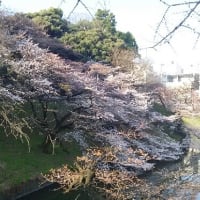Reader's Digest 4月号の記事 "All in a Day's WORK" からの引用です。
The science test question asked:
What is hard water?
The student's answer: Ice.
テストの質問は日本語では硬水とはですね。英英辞書で "hard water" の説明を見ます。
・Vocabulary.comy: water that contains mineral salts (as calcium and magnesium ions) that limit the formation of lather with soap
・Wiktionary: Water with a high concentration of dissolved minerals, especially calcium, making it difficult to lather with soap.
この手の説明は辞書より百科事典の方が詳しいのでWikipediaを見ます。
Hard water is water that has high mineral content (in contrast with "soft water"). Hard water is formed when water percolates through deposits of limestone, chalk or gypsum which are largely made up of calcium and magnesium carbonates, bicarbonates and sulfates.
Hard drinking water may have moderate health benefits. It can pose critical problems in industrial settings, where water hardness is monitored to avoid costly breakdowns in boilers, cooling towers, and other equipment that handles water. In domestic settings, hard water is often indicated by a lack of foam formation when soap is agitated in water, and by the formation of limescale in kettles and water heaters. Wherever water hardness is a concern, water softening is commonly used to reduce hard water's adverse effects.
The science test question asked:
What is hard water?
The student's answer: Ice.
テストの質問は日本語では硬水とはですね。英英辞書で "hard water" の説明を見ます。
・Vocabulary.comy: water that contains mineral salts (as calcium and magnesium ions) that limit the formation of lather with soap
・Wiktionary: Water with a high concentration of dissolved minerals, especially calcium, making it difficult to lather with soap.
この手の説明は辞書より百科事典の方が詳しいのでWikipediaを見ます。
Hard water is water that has high mineral content (in contrast with "soft water"). Hard water is formed when water percolates through deposits of limestone, chalk or gypsum which are largely made up of calcium and magnesium carbonates, bicarbonates and sulfates.
Hard drinking water may have moderate health benefits. It can pose critical problems in industrial settings, where water hardness is monitored to avoid costly breakdowns in boilers, cooling towers, and other equipment that handles water. In domestic settings, hard water is often indicated by a lack of foam formation when soap is agitated in water, and by the formation of limescale in kettles and water heaters. Wherever water hardness is a concern, water softening is commonly used to reduce hard water's adverse effects.



























※コメント投稿者のブログIDはブログ作成者のみに通知されます